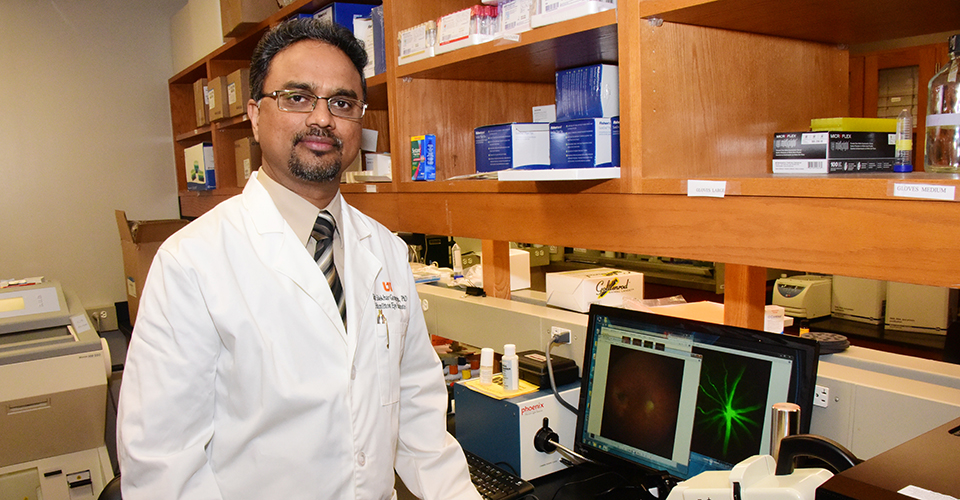
Rajashekhar Gangaraju, PhD, an assistant professor in the Hamilton Eye Institute at the University of Tennessee Health Science Center (UTHSC), has been awarded a $1.5 million grant from the United States Army Medical Research Acquisition Activity to develop stem cell-based therapeutics for retinal damage after traumatic brain injury, specifically in military personnel after blast injuries are sustained.
Blast causing traumatic brain injury (TBI) is also frequently associated with progressing vision problems that can result in blindness. Most knowledge about mild TBI in humans is based on sports injuries and motor vehicle accidents. Relatively less research has been performed on blast-induced brain injuries. The current methods of treatment for these visual deficits are, in any case, far from satisfactory and, in most cases, do not address the underlying neurodegeneration.
Dr. Gangaraju’s laboratory pioneered the use of stem cells derived from human adipose tissue (ADSC), which is readily available and could potentially be useful as a therapeutic strategy in retinal diseases. It is known to secrete a variety of proteins that are neuroprotective. In this pre-clinical study, the researchers will explore if anti-inflammatory proteins released by ADSC have the ability to stop blast-related retinal damage and improve visual function.
This is of high interest to military service members, veterans and their family members. Due to the nature of their work, military members are at an increased risk for TBI from explosive blast, ballistic, blunt, and penetrating trauma. Unfortunately, there is currently no effective treatment against TBI. The devastating lifelong effects of visual loss and blindness seen in this pathology severely affect the quality of life of the individual and their family members and communities in general.
“Adult stem cell therapies will likely help to preserve the vision in soldiers with blast injuries affecting the retina,” said Dr. Gangaraju. “We expect these studies to teach us how ADSC work as anti-inflammatory therapies.”
If successful, treatment for TBI and other retinal diseases, like diabetic retinopathy, using ADSC could become clinical practice within five to 10 years.
The project is titled, “Adipose-Derived Stem Cells Alleviate Visual Deficits in Blast Injury.” The funds will be distributed over three years.
This work was supported by the Office of the Assistant Secretary of Defense for Health Affairs, through the Vision Research Program under Award No. W81XWH-16-1-0778. Opinions, interpretations, conclusions and recommendations are those of the author and are not necessarily endorsed by the Department of Defense.
